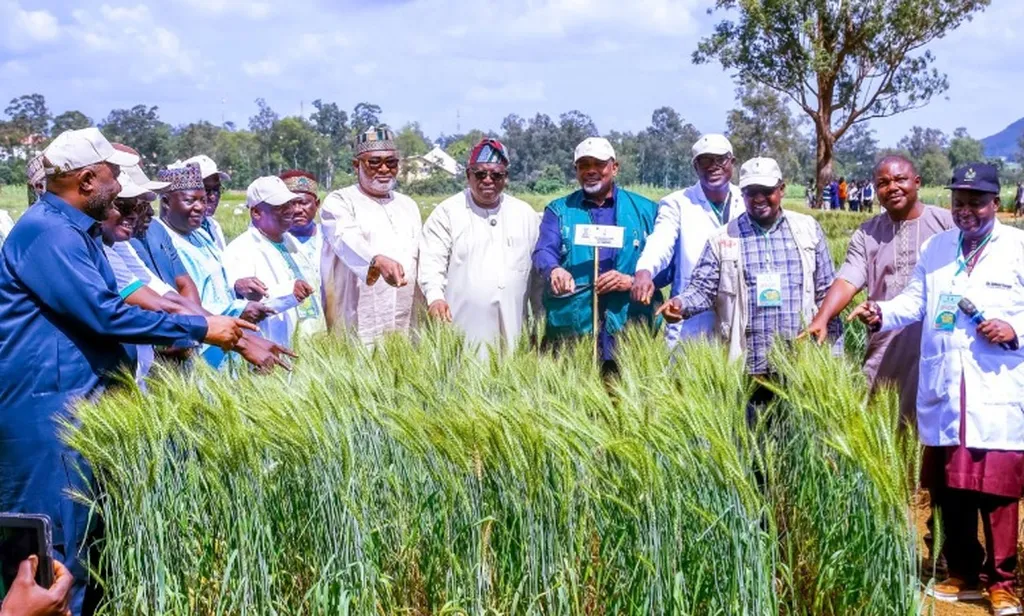In the heart of the Kurdistan Region of northern Iraq, a significant breakthrough in wheat cultivation is set to transform rainfed agriculture and bolster food security. Researchers have developed a new bread wheat cultivar, named ‘Wafaa Halabja’—which translates to ‘Halabja’s Loyalty’—that promises to enhance productivity in the region’s semi-arid landscapes. This development, led by Al-Taie Ali Abbas Khraibet of the Technical College at Sulaimania Polytechnic University, offers a beacon of hope for farmers grappling with the challenges of unpredictable rainfall and resource scarcity.
The journey to this achievement began with a meticulous, eight-year evaluation of 28 wheat genotypes introduced from the International Maize and Wheat Improvement Centre (CIMMYT) in Mexico. The focus was clear: identify the most resilient and high-yielding genotypes suited to the Shahrizor plain, a representative rainfed area in the Kurdistan Region. “Our goal was to improve wheat productivity under rainfed conditions, where water availability is a significant constraint,” Khraibet explained. “We needed genotypes that could thrive despite the variability in rainfall and environmental stress.”
From the initial pool, nine superior genotypes emerged, which were then rigorously tested against three widely grown local cultivars over two consecutive agricultural seasons (2022/2023 and 2023/2024). The results were compelling. Genotype no. 22, now officially named ‘Wafaa Halabja,’ consistently outperformed its peers in grain yield, yield components, and stability. This genotype exhibited remarkable traits, including a high number of spikes per square meter, a substantial 1,000-grain weight, and robust grain yield stability across varying rainfall conditions.
The significance of this discovery extends beyond the fields of northern Iraq. “Wafaa Halabja’s adaptability and productivity under rainfed conditions make it a valuable asset for semi-arid regions worldwide,” Khraibet noted. “This cultivar not only enhances food security but also offers economic benefits for farmers by increasing yields and reducing reliance on irrigation.”
The official approval and release of ‘Wafaa Halabja’ by the Iraqi Ministry of Agriculture mark a pivotal moment in sustainable wheat production. This new cultivar is poised to revolutionize rainfed farming systems, providing a reliable and high-yielding option for farmers in challenging agroecological environments. As the world grapples with climate change and resource scarcity, innovations like ‘Wafaa Halabja’ are crucial for ensuring food security and agricultural sustainability.
Published in the journal ‘Agriculture,’ this research underscores the importance of long-term field evaluations and international collaboration in developing resilient crop varieties. The success of ‘Wafaa Halabja’ serves as a testament to the power of scientific rigor and the potential for transformative impact in the field of agritech. As researchers and farmers continue to adapt to changing climates, the lessons learned from this study will undoubtedly shape future developments in wheat cultivation and beyond.

